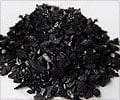Carbon footprint labels on food items can help cut potential environmental impacts, reveals a new study.

TOP INSIGHT
Carbon footprint labels on food items can help cut potential environmental impacts, reveals a new study.
Conversely, beef and lamb with 19 per cent to 29 per cent of global greenhouse gas emissions are the biggest contributors, explained the researchers from the University of Technology Sydney in Australia.
"If you ask people to guess the difference between items such as beef and vegetable soup on the environment they assume there is not much difference, but beef soup creates more than 10 times the amount of greenhouse gases than vegetable soup," said Adrian Camilleri, lead researcher from the varsity.
"The choices we make at the dinner table can have a significant impact on global challenges such as climate change, and our research shows consumers are keen to make that choice," she added.
For the study, the team presented 120 participants with a choice of soups to buy.
Greenhouse gases emerging from beef and lamb production include those created in the production of fertiliser for feed, methane emitted from the animals, livestock transportation and the loss of trees to clear land for pasture.
Source-IANS
 MEDINDIA
MEDINDIA




 Email
Email










